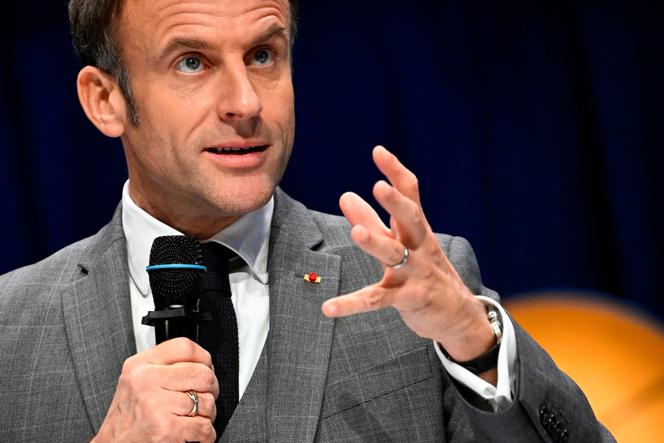


On Thursday, November 30, Emmanuel Macron was to begin a new trip, intended to be partly devoted to the Israel-Hamas war, against the backdrop of the extension of the truce in Gaza and the continuing exchange of hostages and prisoners. The French head of state is due to use the opportunity of his attendance at COP28 in Dubai (United Arab Emirates) to meet a series of regional leaders, including the Emirati leader, Mohammed bin Zayed, the Saudi Crown Prince, Mohammed bin Salman, and the Egyptian president, Abdel Fattah el-Sissi.
The talks – not all of which had been finalized by the time of Macron's departure on Thursday at midday – are scheduled to take place over Friday and Saturday. The French president is also expected to meet his Israeli counterpart, Isaac Herzog, who will be present in Dubai, but at this stage has no plans to make a detour to Tel Aviv to see Israeli Prime Minister Benjamin Netanyahu, with whom relations have been strained since Macron called for a ceasefire in the Gaza Strip.
With his various negotiating partners, Macron hopes to address the question of the "day after" Israeli military operations in the Gaza Strip. For Paris, the aim will be to – as much as possible – prepare for the return of the Palestinian Authority to the territory previously controlled by Hamas. The return of an Israeli administration to the enclave has been deemed "unacceptable."
In the wake of COP28, Emmanuel Macron will travel to Doha (Qatar) on Saturday afternoon to meet Emir Tamim bin Hamad Al Thani, whose country has been playing a key role as an intermediary between Israel and Hamas, notably concerning the release of hostages.
Macron's first trip to Israel, the West Bank, Jordan and Egypt, over October 24 and 25, was largely overshadowed by a dead-end initiative from the Elysée to set up an international coalition to fight Hamas, along the lines of the one spearheaded by the United States since 2014 against the Islamic State (IS) organization. Neither Israel – which wanted to conduct its retaliation to the October 7 attacks as it sees fit – nor the capitals of Arab countries, for whom Hamas has little in common with jihadist groups, seemed interested.
The president and his entourage – who had not informed either the Foreign or Armed Forces Ministries of the initiative – quickly revised their proposal, rebranding it as an "initiative for security and peace for all." Macron has sought to move on three fronts: Providing security against the terrorist groups active in the region, including Hamas; providing humanitarian aid for the civilian population of the Gaza Strip; and reopening political discussions aimed at creating a Palestinian state that could one day coexist with the Jewish state.
You have 55% of this article left to read. The rest is for subscribers only.
